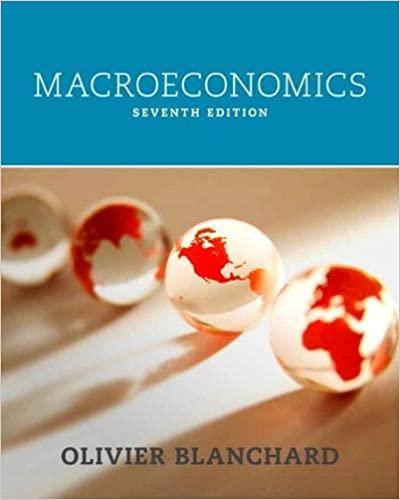Consider the economy described in Problem 3 and assume that there is a fixed exchange rate, (bar{E}).
Question:
Consider the economy described in Problem 3 and assume that there is a fixed exchange rate, \(\bar{E}\). Suppose that financial investors worry that the level of debt is too high and that the government may devalue to stimulate output (and therefore tax revenues) to help pay down the debt. Financial investors begin to expect a devaluation of \(10 \%\). In other words, the expected exchange rate, \(\mathrm{E}_{\mathrm{t}+1}^{\mathrm{e}}\), decreases by \(10 \%\) from its previous value of \(\bar{E}\).
a. Recall the uncovered interest parity condition:
\[
i_{t}=i_{t}^{*}-\frac{E_{t+1}^{e}-\bar{E}}{\bar{E}}
\]
If the foreign interest rate remains constant at 10\% a year, what must happen to the domestic interest rate when \(E_{t+1}^{e}\) decreases by \(10 \%\) ?
b. Suppose that domestic inflation remains the same. What happens to the domestic real interest rate? What is likely to happen to the growth rate?
c. What happens to the official budget deficit? What happens to the inflation-adjusted deficit?
d. Suppose the growth rate decreases from \(2 \%\) to \(0 \%\). What happens to the change in the debt ratio? (Assume that the primary deficit/surplus ratio to GDP is unchanged, even though the fall in growth may reduce tax revenues.)
Step by Step Answer:






